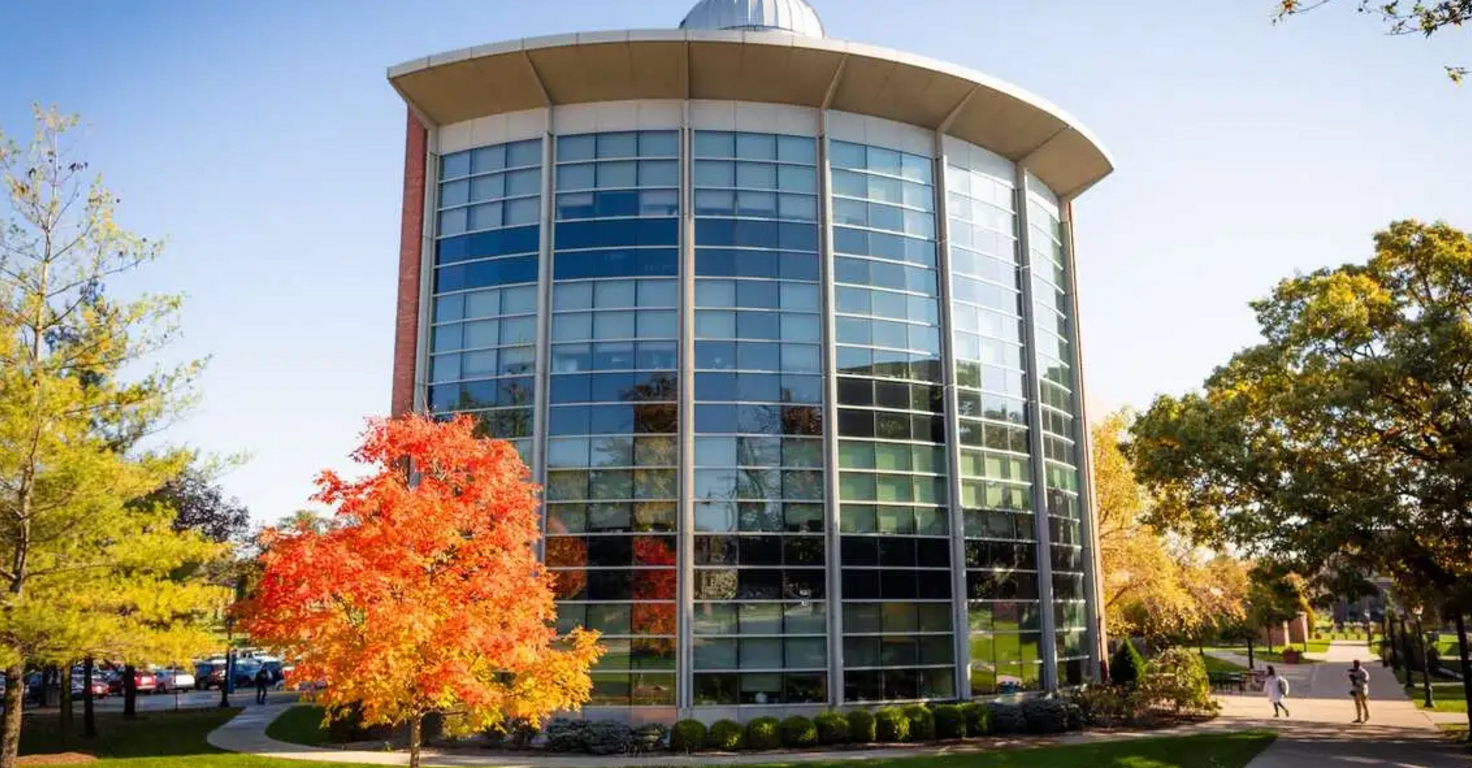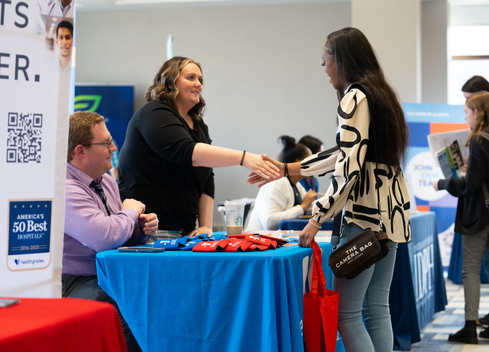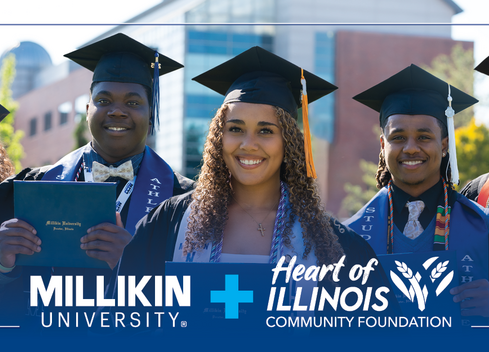DECATUR – At the Illinois Chapter of the American Fisheries Society’s Annual Meeting held in March in Effingham, Ill., Millikin Biology major Katie Abell presented her research poster titled “Land use practices influence stream fish antioxidant levels.” Katie's outstanding work earned her the conference’s Best Poster Award.
Katie also received the Diverse Voices Scholarship, awarded to participants who are members of groups historically underrepresented in fisheries research. This scholarship covered the cost of travel to and from the conference and the registration fee.
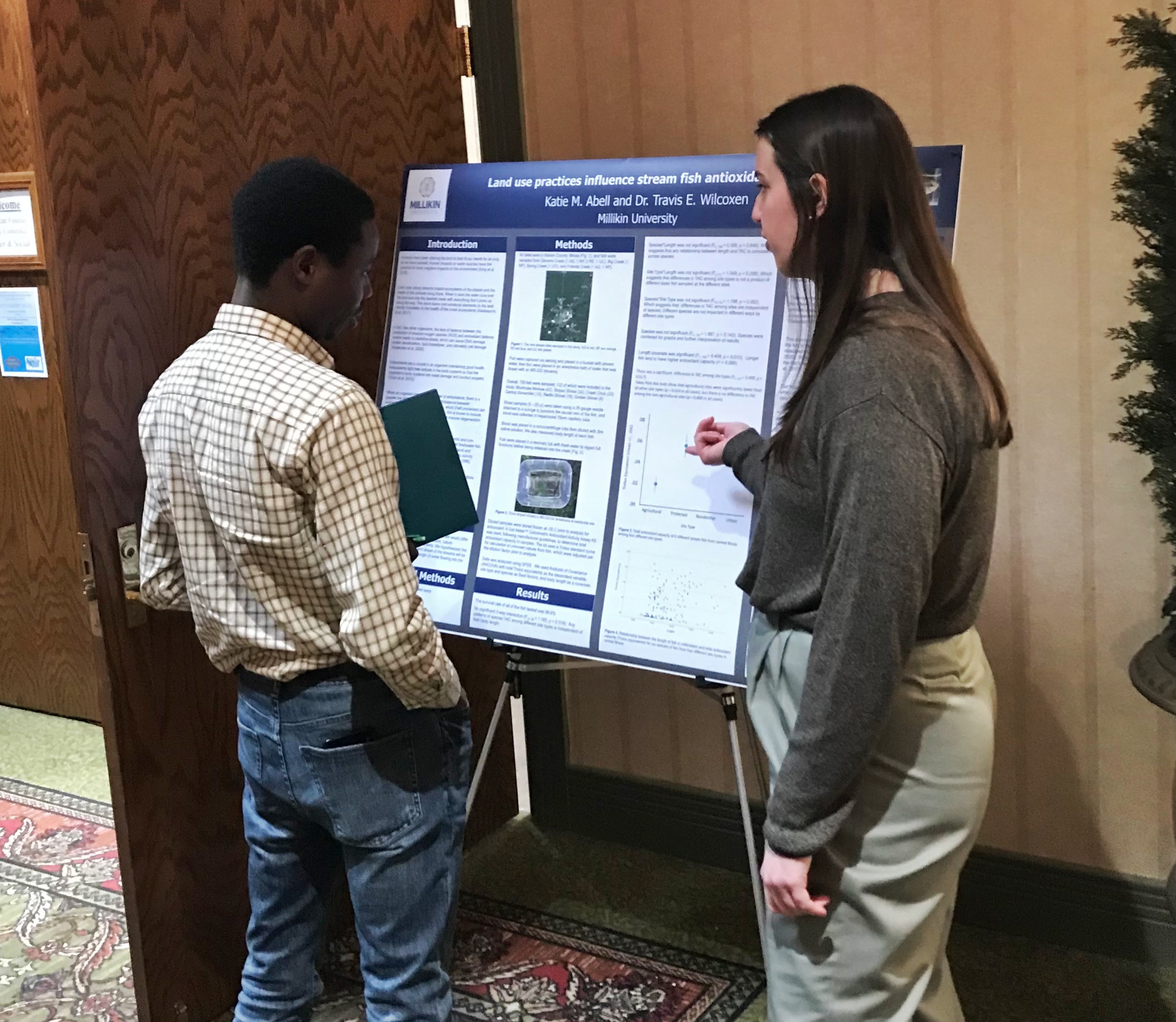
"Students in the Biology major at Millikin are expected to pursue research as part of their degree program. We try to ensure that research doesn't just stay within the walls of our buildings. In this case, Katie presented her work at a professional conference at which many potential employers and potential graduate advisors were present,” Professor and Chair of Biology Department Travis Wilcoxen said. “Seeing Millikin Biology graduates there representing their employers professionally is evidence that these experiences can translate to professional success, which is our ultimate goal."
Joining Katie at the conference were two recent Millikin Biology graduates. Eric Curtis ’20 represented his employer, Aquatic Control, and Hailey Wimberly ’22 represented her employer, the Illinois Natural History Survey's Illinois River Biological Station.
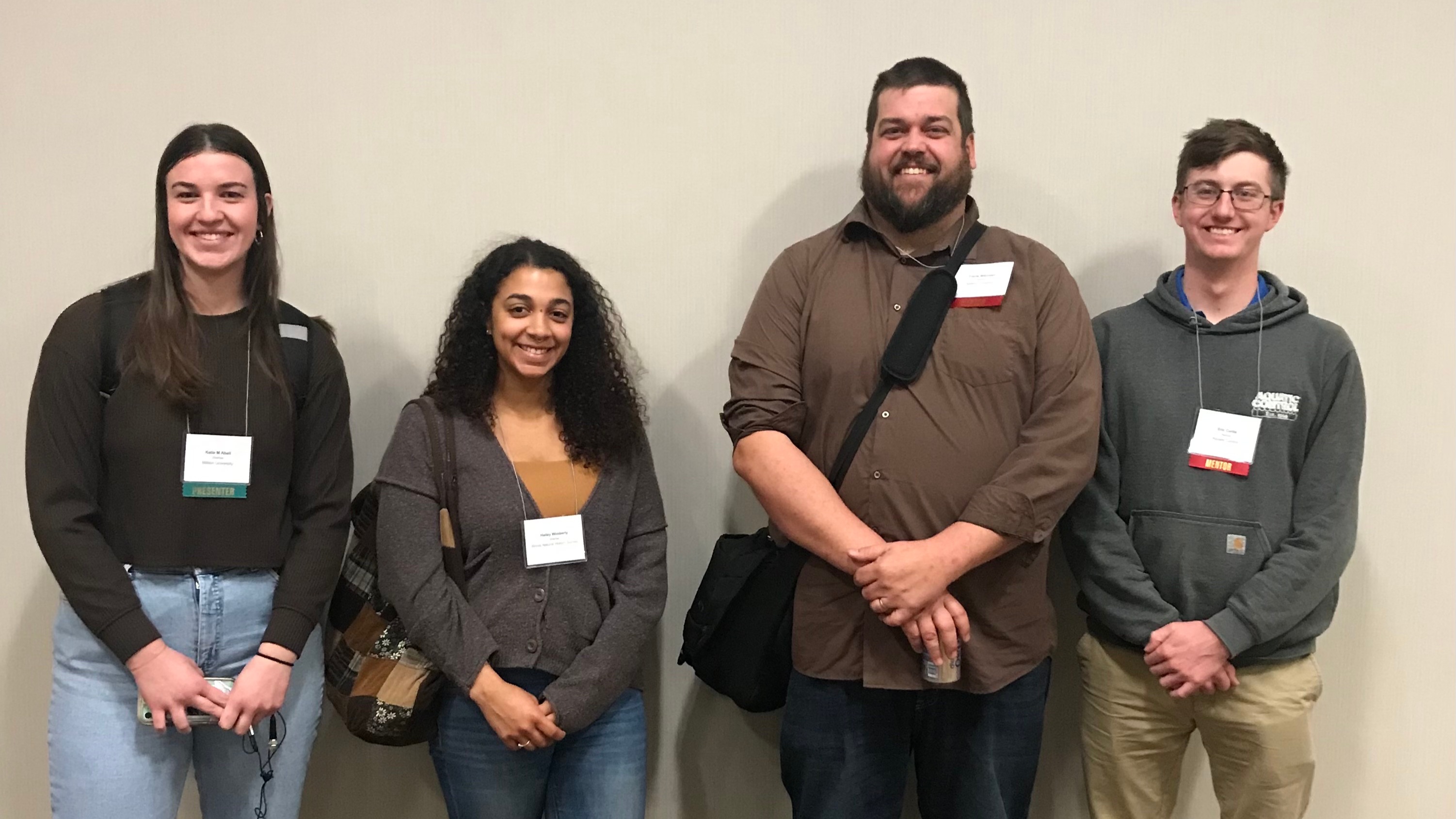
“The Illinois Chapter of the American Fisheries Society Annual Meeting provided a great regional opportunity for professionals and students to share their research in fisheries sciences, on the scale of large river ecosystems all the way down to the health of small stream fish,” Professor Wilcoxen said. “They included a Mentor Social, where established professionals met with students and early career professionals to discuss career opportunities and research collaborations. The chapter is committed to increasing representation in fisheries research from all people.”
